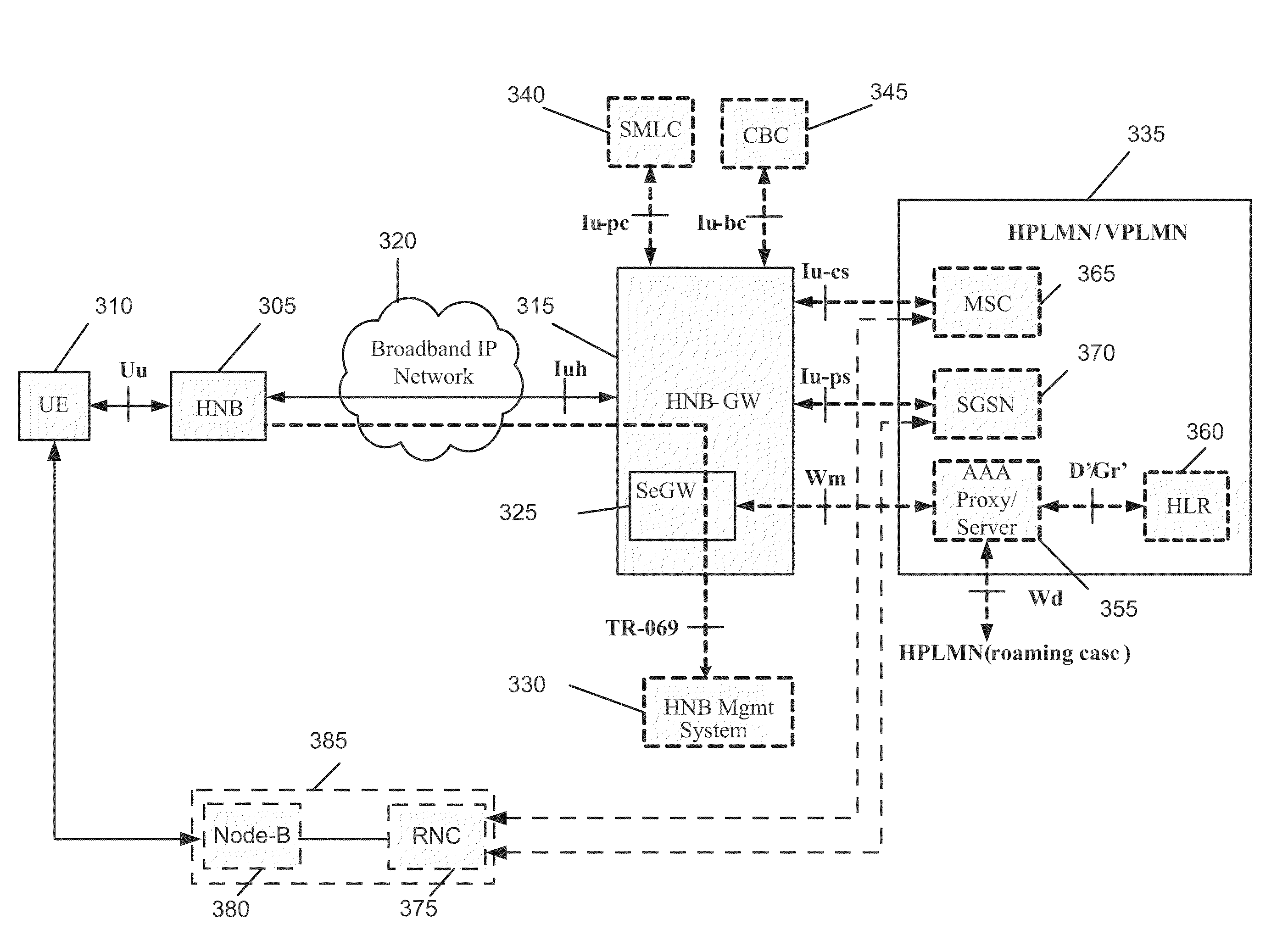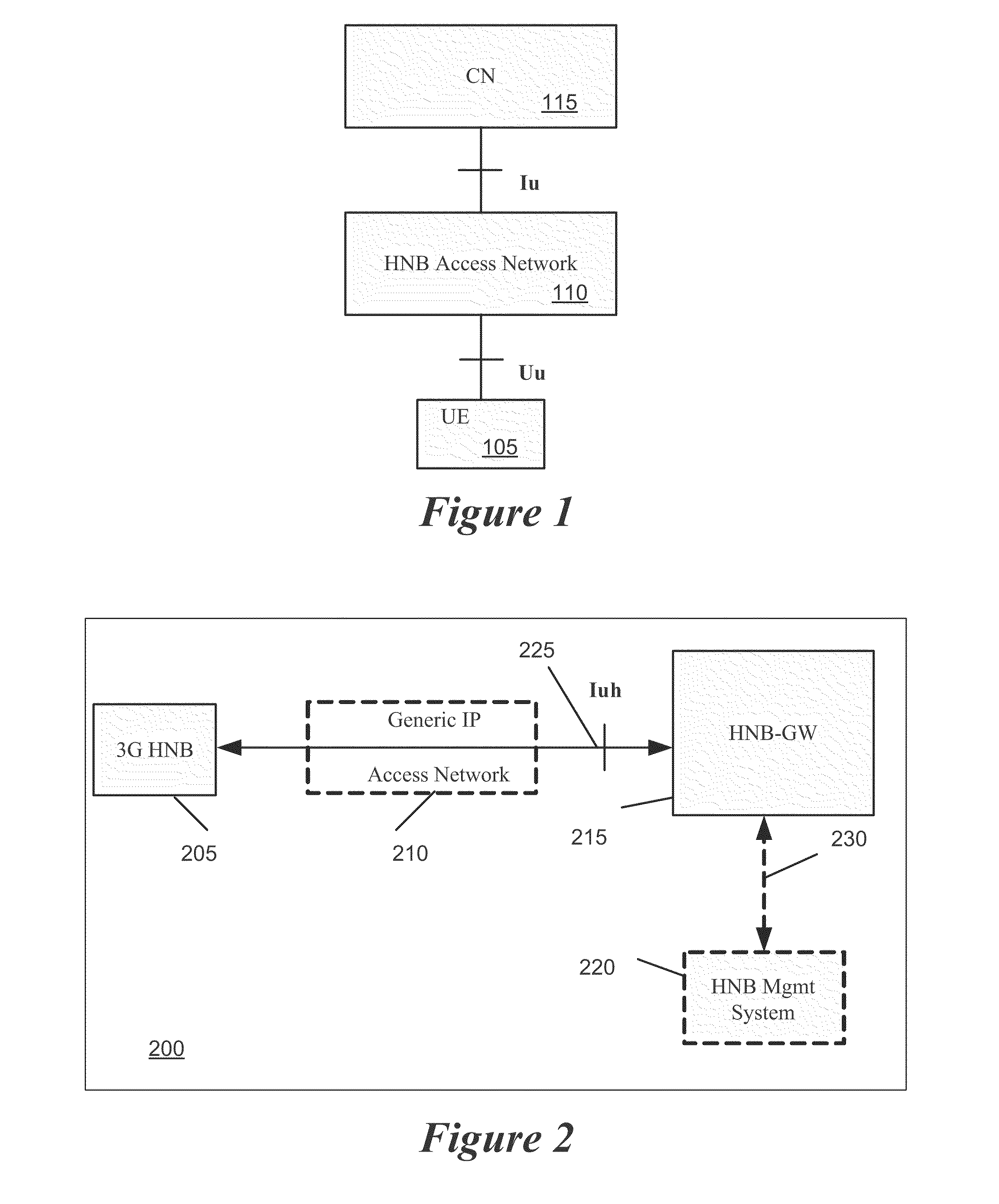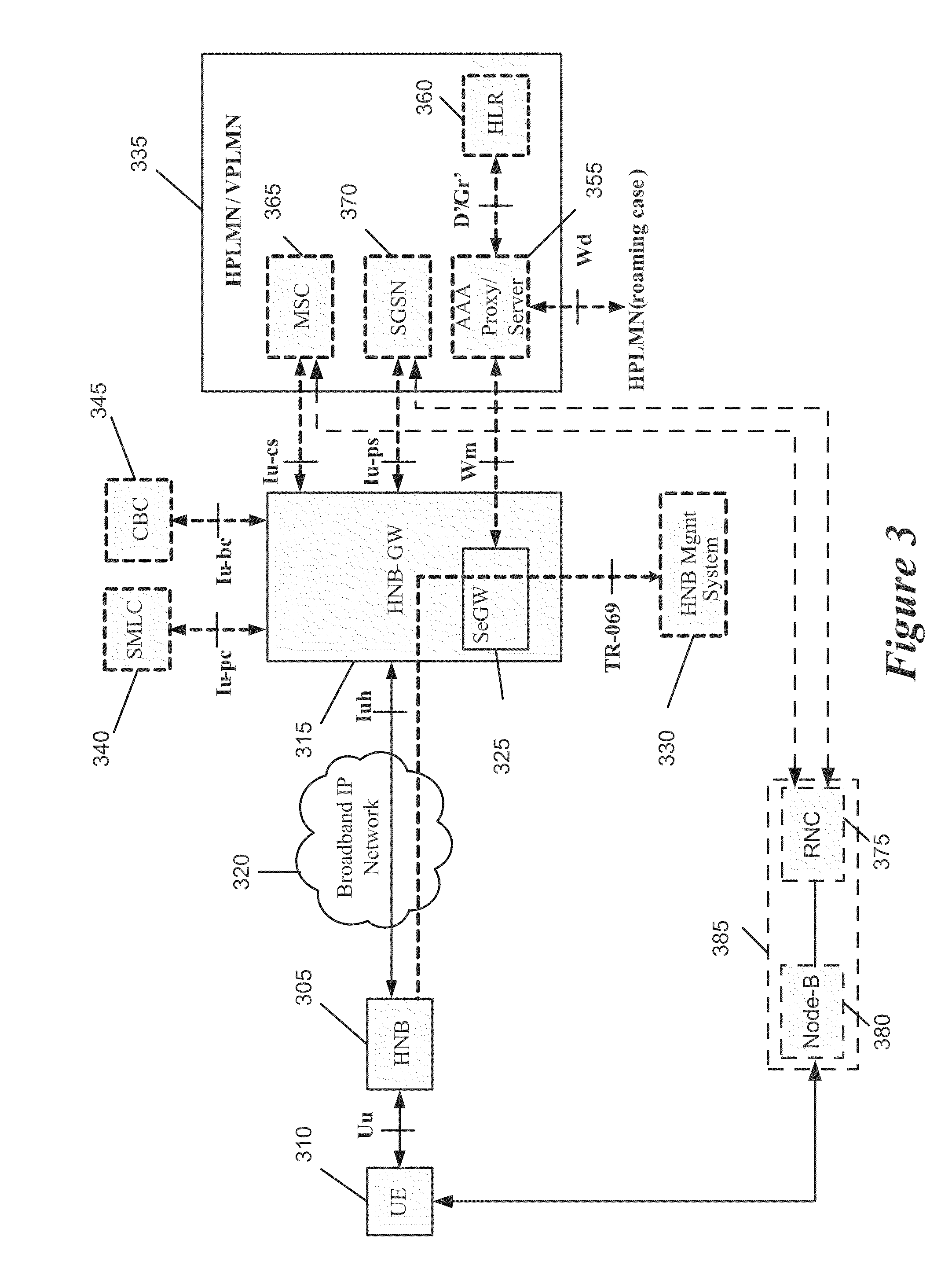Home Node B System Architecture with Support for RANAP User Adaptation Protocol
a home node and user adaptation technology, applied in the field of telecommunication, can solve the problems of limiting the data transfer rate and range, affecting the speed and quality of service, and the frequency and frequency of typical licensed wireless systems, so as to reduce the deployment cost of the hnb-an, speed and quality of service, and reduce the deployment cost
- Summary
- Abstract
- Description
- Claims
- Application Information
AI Technical Summary
Benefits of technology
Problems solved by technology
Method used
Image
Examples
case examples
[0520]B. Service Access Control Use Case Examples
[0521]The following example service access control use cases are described in this section: (1) New HNB connects to the HNB-GW; (2) the HNB connects to the HNB-GW network (redirected connection); (3) the HNB attempts to connect in a restricted UMTS coverage area; (4) Authorized UE roves into an authorized HNB for HNB service; and (5) Unauthorized UE roves into an authorized HNB for HNB service.
[0522]1. New HNB Connects to the HNB-GW
[0523]FIG. 60 illustrates the SAC for a new HNB connecting to the HNB network, in some embodiments. This figure includes HNB 6005, public DNS 6010, SeGW #1 (provisioning SeGW) 6015, private DNS 6020, (provisioning) HNB-GW #16025, and (default / serving) HNB-GW #26030.
[0524]As shown, if the HNB 6005 has a provisioned FQDN of the Provisioning SeGW 6015, it performs (at step 1) a DNS query (via the generic IP access network interface) to resolve the FQDN to an IP address. If the HNB 6005 has a provisioned IP add...
PUM
 Login to View More
Login to View More Abstract
Description
Claims
Application Information
 Login to View More
Login to View More - R&D
- Intellectual Property
- Life Sciences
- Materials
- Tech Scout
- Unparalleled Data Quality
- Higher Quality Content
- 60% Fewer Hallucinations
Browse by: Latest US Patents, China's latest patents, Technical Efficacy Thesaurus, Application Domain, Technology Topic, Popular Technical Reports.
© 2025 PatSnap. All rights reserved.Legal|Privacy policy|Modern Slavery Act Transparency Statement|Sitemap|About US| Contact US: help@patsnap.com



